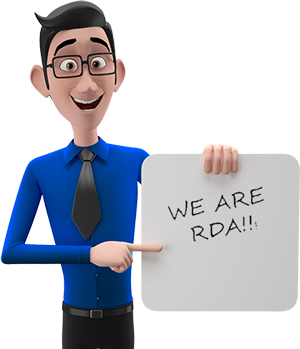HOA Property Manager Responsibilities: A Financial Perspective
Property Manager Responsibilities are essential to the success of Homeowners Associations (HOAs), especially as community living becomes increasingly popular. In this context, the role of an HOA property manager is often overshadowed yet fundamentally critical. Financial stability within these communities is paramount, as it directly impacts the overall quality of life for residents. Understanding the importance of financial oversight can illuminate how these managers contribute to the cohesion and prosperity of the neighborhoods they oversee.
HOA property managers play a diverse set of roles, primarily focusing on ensuring the financial health of the association. They are tasked with billing and collections, managing budgets, and preparing financial reports, all of which require a keen understanding of financial principles. A well-managed HOA can enhance property values and maintain a positive living environment, making the financial responsibilities of these managers essential.
This article delves into the financial responsibilities of HOA property managers, exploring how they interact with management companies, the HOA board, and the challenges they face. By examining the financial framework and best practices for HOA management, we’ll see how effective financial oversight plays a crucial role in the sustainability and success of community living.
Key Financial Responsibilities of an HOA Property Manager
An essential duty of an HOA property manager is to oversee the billing of residents within the residential community for dues and assessments. These are typically billed regularly, ensuring the financial stability of the community. A property management company must implement a firm collection policy, alerting homeowners about delinquent payments through notices and maintaining consistent communication with the board about the status of problematic accounts. In pursuing delinquency, the process can escalate to legal action, where the property manager coordinates with the HOA’s legal counsel. Understanding state laws about collections is critical for the property manager, ensuring that actions taken are compliant and protect the association’s financial interests.
Financial Management and Reporting
Financial management is at the heart of a property manager’s responsibilities, with the consequences of mismanagement being far-reaching for the community’s stability and reputation. HOA management companies rely on skilled community association managers and accountants to utilize sophisticated software for accurate financial management and report generation. This includes the crucial task of preparing budgets and financial reports for the board to review, facilitating transparent financial planning and strategic decision-making. Community Association Managers also conduct regular financial analysis of the association’s income, expenses, and reserves, providing strategic financial planning insights. Sourcing expert opinions on fiscal matters, whether through internal or external advisors, is often necessary for dealing with more intricate financial concerns.
Accounting Duties
Property managers provide a variety of accounting services crucial to maintaining the financial health of an HOA. This includes the preparation of budgets, invoicing homeowners for dues, and proactively managing delinquencies. Late fees or more severe actions such as foreclosures may be employed to manage overdue accounts. The Community Association Manager works closely with the board, preparing transparent financial reports and contributing to discussions that ensure responsible financial oversight. An important task is determining the funds due to the association and preparing documents for board meetings where financial decisions will be discussed and made.
Budgeting Processes
The budgeting process is central to an HOA manager’s role, involving the meticulous preparation and execution of the annual budget. Continual review and proper maintenance of the financial records are indispensable for effective budget management. Throughout the year, an HOA manager must closely monitor the budget, ensuring there are adequate funds available for both planned projects and unforeseen emergencies. Providing regular, detailed financial reports to the board is a part of this process, offering crucial information for informed budgeting decisions. Often, HOA managers may seek the expertise of financial advisors or accountants when constructing budgets or tackling complex financial issues, ensuring that executive board decisions are made on a strong financial basis.
Billing and collections
An HOA property management company holds the critical responsibility of maintaining the financial health of a residential community through diligent billing and collections practices. The company must regularly bill residents for dues and assessments, typically on a monthly basis. These funds are crucial for the upkeep of common areas and for sustaining property values within the community.
An effective collections policy is of paramount importance. Property managers are tasked with dispatching timely delinquency notices to homeowners who fall behind on payments. Continuous and transparent communication with the community association’s board of directors is crucial, demanding regular updates on problematic accounts to support executive board decisions.
In instances where accounts remain delinquent, management companies may take firmer action by forwarding these accounts to collections. They coordinate closely with the HOA’s collection attorney to pursue legal measures when necessary. Moreover, staying abreast of state laws governing collections is an essential aspect of a property manager’s role, ensuring all actions align with legal requirements and protect the association’s financial interests.
Billing and Collections Summary:
- Monthly Billing: Send out regular dues and assessment invoices.
- Collections Policy: Implement and enforce stringent measures for overdue accounts.
- Delinquency Notices: Notify residents promptly about late payments.
- Board Communication: Maintain transparency with the executive board regarding account issues.
- Legal Coordination: Work with collection attorneys to address unresolved delinquencies.
- Compliance: Stay updated on state collection laws to ensure proper legal adherence.
The Role of the HOA Management Company
An HOA management company serves as the operational backbone of a homeowners association, playing a crucial role in ensuring a community’s upkeep and safety. By partnering with the HOA board, the management company helps to create and manage the financial roadmap for the community, considering essential needs while meticulously matching expenses with revenues. These responsibilities require a robust financial acumen, as the property manager juggles budgeting, accounting, and intricate financial reporting.
The company is also integral in collecting dues from homeowners, which are vital for the financial sustainability of the community. Additionally, it enforces compliance with the association’s rules and regulations, a measure necessary to maintain community standards and property values.
Serving as an intermediary, the HOA management company is the point of contact between the board of directors and individual homeowners. By efficiently implementing policies established by the board, the company facilitates a symbiotic relationship between the governance and the residential community.
Risk Reduction Strategies
Mitigating potential risks is a significant duty of any property management company, aiming to safeguard the community from liabilities and hazardous situations. To minimize threats, the company ensures that the homeowners association maintains up-to-date and comprehensive insurance coverage.
Informed residents are safe residents; thus, the property manager communicates any risks that may impact community safety to homeowners. Active assessment and the proposal of safety measures are measures taken by the management to maintain the welfare of all residents and, by extension, the community’s reputation and standing.
Preparing for the unexpected is part of efficient risk management. Strategies implemented by the property management company equip the board to handle worst-case scenarios, anticipating and thus mitigating the impacts of such events.
Vendor Management Responsibilities
HOA property managers carry the responsibility of vendor oversight, ensuring that all contracted service providers align with the association’s quality expectations. As they do not directly supervise vendors, they must maintain regular assessments of the work quality to ensure it meets the community’s standards.
They coordinate with vendors for timely and essential services like landscaping and general maintenance, making certain these services are consistently executed. When it comes to vendor contracts, the property manager’s negotiation skills are key in securing advantageous terms and pricing that suit the budget needs of the HOA.
Soliciting competitive bids is part of this process, as the HOA strives to balance cost-effectiveness with high-caliber service. This careful stewardship of resources is vital in preserving, if not enhancing, community property values through diligent quality control pursuits.
Enforcing Community Policies
The enforcement of community policies is a cornerstone of maintaining order and ensuring a high quality of life within any HOA-governed neighborhood. These policies are essential for preserving property values and guaranteeing that the community’s aesthetic standards remain exceptional.
HOA management companies oversee homeowners’ compliance with architectural guidelines, which dictate the exterior look of homes and buildings. They also implement parking regulations and enforce noise restrictions. Compliance with such regulations helps maintain the serene and orderly environment that residents expect, contributing to the overall appeal and desirability of the residential area.
Adherence to these guidelines reinforces a community’s ethos, fostering a cohesive residential environment that aligns with the expectations set forth by the association’s governing documents.
Relationship Between the HOA Board and Management Company
The relationship between the HOA board and the management company is one of partnership and advisory. While the HOA board holds the ultimate decision-making authority within the community association, the management company serves as a professional support entity to facilitate administrative procedures and guide the board through complex decision-making processes. The property management company brings expertise in property values, community management efficiency, and operational practices, which is particularly valuable to the volunteer board members.
A property management company does not have the power to create governing policies or set fine schedules for the community; this responsibility remains with the board of directors. The board looks to the management company for advice and administrative support but retains control over policy creation and enforcement. Operationally, the management company works independently from the board, yet their collaboration is crucial for executing executive board decisions, ensuring individual homeowners are compliant and maintaining the overall health of the residential community.
Communication for Financial Oversight
One of the key responsibilities of a property manager within an HOA is managing and reviewing the Association’s financials, which include income, expenses, and reserve funds. These financial elements require thorough understanding and regular monitoring. The property manager provides the board with detailed financial reports, helping the directors understand the Association’s financial position and any concerns that may require attention.
Effective communication between the HOA manager and the board is essential for maintaining a transparent and harmonious community environment. This transparency extends to all residents, as it is imperative that the community trusts the financial oversight of the HOA. Through clear reporting and open channels of communication, concerns can be addressed promptly, and information can be shared efficiently.
Additionally, the management company typically employs staff accountants who offer assistance with financial matters, providing valuable expertise for both routine budgeting and complex financial planning. This interdisciplinary approach ensures that the community’s financial practices are sound, compliant, and reflect the collective interests of the homeowners.
Collaboration in Budgeting and Financial Planning
Collaboration in budgeting and financial planning is a critical aspect of property management within an HOA. The property manager works closely with the board to review financial documents, offering recommendations for budgeting based on current assessments and community needs. Regularly provided financial reports include an analysis of income, expenses, and reserve funds, which contribute to accurate and responsible budgeting.
HOA managers are encouraged to consult with financial advisors or accountants, particularly during the creation of budgets and the planning of reserve fund investments. Financial issues often demand expertise beyond the core competencies of the board members, and specialized advice can be crucial to the community’s long-term financial health.
Management companies often have staff accountants who assist with these financial matters, reassessing budgets, conducting audits, and ensuring the community’s financial strategy meets both the immediate and future needs of the residential community. Such collaboration ensures that short and long-term financial strategies are aligned with the overall goal of maintaining and enhancing property values and quality of life within the community.
Importance of Education for HOA Board Members
Homeowner associations (HOAs) hinge on effective community management, which is often a complex task requiring specific skills and knowledge. Since HOA board members come from diverse backgrounds and may not inherently possess the skills needed for this nuanced role, investing in their education is paramount. Specialized training programs, including HOA board certification courses, can arm these members with vital knowledge about applicable laws, regulations, and best practices.
An HOA property manager who is often an Association Management Specialist, plays a pivotal role in bridging the knowledge gap for the board members. They aid in elucidating the intricacies of community management, assuring that the board’s decisions are informed and compliant with governing documents. The manager’s guidance is crucial in helping board members understand their responsibilities and the legal ramifications of their policy decisions.
Continuous education is indispensable as it empowers board members to avoid developing policies that may conflict with legal requirements or the association’s governing documents. Ultimately, education fosters the capability to manage the unique challenges that arise within a community, nurturing a cooperative and well-managed living environment for all residents.
Training in financial management
Proper financial management stands as a cornerstone for the stability and success of an HOA. Recognizing this, many property management companies hire seasoned accountants skilled in managing an association’s financial demands. These professionals utilize sophisticated, up-to-date software to ensure precise management of association finances.
For an HOA property manager, possessing a robust knowledge of financial management is critical. This includes budgeting, accounting, and preparing financial reports. Community Association Managers are often required to master these competencies as part of their licensure process and they also undergo continuing education to stay abreast of the latest financial management strategies.
Such training and expertise are crucial in guiding the board of directors in their fiscal duties and enabling them to make informed decisions that could have lasting effects on the community’s financial health and property values.
Understanding community financial obligations
The financial obligations of an HOA are manifold, and part of the property manager’s role is to ensure that these are met with diligence. This involves the collection of dues from homeowners, which is a process managed with emphasis on transparency and accountability, with funds deposited directly into the HOA’s account.
Maintaining accurate and timely financial records is an essential function, serving as the backbone of the association’s financial wellness. Monthly financial statements provided by the property management company equip the HOA board with a clear view of their finances, aiding in judicious decision-making.
Assertive financial oversight by the property manager helps avert unforeseen expenses and fortifies the association against financial missteps, ensuring that budget forecasts are realistic and achievable. Due to the critical nature of these tasks, it’s not uncommon for HOAs to seek out property management companies with specific prowess in accounting and financial services, ensuring that their community’s fiscal responsibilities are expertly managed.
Best Practices for Financial Stability in HOAs
Ensuring financial stability within a homeowners’ association (HOA) is a complex task that hinges on a variety of best practices. An HOA property manager plays a pivotal role in maintaining this stability by undertaking directives to manage the community’s financial operations rigorously. This includes the crucial collection and management of HOA fees, which are the lifeblood for covering the community’s maintenance, repairs, and administrative services.
It is incumbent upon the property manager to establish a clear financial framework and adhere to meticulous financial planning. This involves preparing comprehensive budgets that account for current needs while anticipating potential future expenses. Regular auditing and financial reviews serve as checkpoints, verifying the accuracy of financial records and ensuring that the community’s funds are managed responsibly.
Property management companies, which often absorb the broader financial responsibilities, must also communicate transparently with the board, keeping them apprised of budget execution and any delinquent accounts. Only through diligent oversight and the use of sophisticated financial management tools can HOA managers provide the fiscal security needed to support a thriving residential community.
Establishing a clear financial framework
Establishing a clear financial framework is the cornerstone of sound financial management for an HOA. The property manager must spearhead the creation of a detailed budget that lays out all expected expenses and income streams. This includes projecting costs for communal services, setting aside reserves for capital improvements, and determining the necessary HOA fees to cover these expenditures.
A thorough understanding of the finances allows the property manager to collect dues efficiently, adhering to a schedule that ensures sufficient cash flow. In doing so, they not only track and manage the association’s financial activities but also maintain meticulous records that provide a transparent view into the fiscal health of the HOA. It is also best practice to involve an independent CPA for financial audits, adding an additional layer of reliability to the review process and promoting confidence among individual homeowners.
Regular audits and reviews
Regular audits and reviews are essential to maintaining financial integrity within an HOA. The engagement of a third-party or independent CPA to conduct these audits is a best practice that property managers and boards should adopt to validate financial transparency and accuracy. Although state laws vary regarding audit mandates, adhering to this practice even in the absence of legal requirements can protect against discrepancies and fraud.
The board must facilitate these audits to ensure independence from the management company’s operational control. This division of duties affirms that the financial data reflects true transactions and is free from manipulation. Establishing check signing limits is another prudent control that requires larger expenditures to receive direct board approval, thereby fortifying financial oversight.
Effective use of financial management tools
To guarantee financial stability within an HOA, the property manager must utilize effective financial management tools. This entails deploying current technologies and software that foster precise and efficient financial oversight. Management companies often employ seasoned accountants who leverage these tools to perform everyday financial tasks and engage in strategic reserve fund planning.
These tools help in streamlining the preparation of accurate financial records and statements, which is critical in promoting transparency and accountability. Moreover, possessing a deep comprehension of local and state regulations, which can include specific zoning and HOA laws, is imperative. This knowledge aids financial decision-making and is a safeguard against potential legal issues stemming from financial mismanagement. By using advanced financial management tools coupled with knowledgeable personnel, an HOA can look forward to preserving its property values and ensuring the wellbeing of the residential community it serves.
Challenges Faced by HOA Property Managers
HOA property managers commonly confront a series of challenges that can range from the mundane to the monumental. One of the most complex aspects is financial management, which requires meticulous attention to accounting and bookkeeping. A property manager must regularly update and maintain accurate financial records, as well as prepare detailed monthly statements for the board’s review. The consequences of a mismanaged budget can have a long-term impact, potentially leading to increased fees or special assessments for emergency repairs that were not properly anticipated.
Vendor relations also present a suite of difficulties. Property managers stand at the crossroads of securing quality services from vendors while operating within the stringent confines of the approved budget. This balancing act is further complicated in larger communities that offer diverse amenities and require tailored services. Moreover, the enforcement of community rules and regulations can be a source of conflict between the property manager and individual homeowners, making the role of mediator and careful negotiator essential. The confluence of these responsibilities demonstrates the intricate role property managers play within the fabric of an HOA.
Dealing with Delinquent Accounts
A diligent property management company handles billing for community assessments, usually on a monthly basis, to facilitate timely payments from homeowners. Despite these efforts, delinquency can occur, prompting the dispatching of notices as part of an assertive collections policy. Keeping the board abreast of delinquent accounts is a crucial aspect of enabling informed decision-making on how to manage these payments. When necessary, delinquent accounts may be escalated to a collections agency, and legal action initiated by the HOA’s collection attorney, demanding a stringent adherence to collections-related state laws throughout the process.
Navigating Financial Disputes
When contentious financial issues such as budget creation or reserve fund investments arise, a HOA property manager often turns to a financial advisor or an accountant for expert advice. Engaging financial experts for audits, reviews, and compilations is a common practice that aids in the proper handling of financial disputes. Monthly financial statements, prepared by the HOA manager, are essential for board review and crucial for decision-making on monetary matters. Managers play an important role in assisting the board with planning and maintaining the budget, helping to effectively manage and resolve potential financial conflicts.
Adapting to Changing Regulations
Staying abreast of the latest legal requirements is a non-negotiable duty of an HOA property manager, particularly when it comes to collections and the enforcement of community rules. This might involve revising existing rules to ensure legal compliance or adapting the association’s practices in response to changes in the regulatory environment. A crucial part of an HOA manager’s responsibility is ensuring compliance with governing documents, which may require interpreting and applying changes in law. This ensures that the association not only operates effectively but also remains in good legal standing.
Related Articles:
- HOA Property Management: Finding the Right Fit
“Guidelines to help HOAs find the right property management company for their community.” - Evaluating Potential Vendors for HOAs: Key Questions for Success
“Key questions to ask when evaluating potential vendors for your HOA.” - How to Manage HOA Common Area Maintenance Efficiently
“Tips for efficiently managing common area maintenance in HOAs to ensure member satisfaction.”








